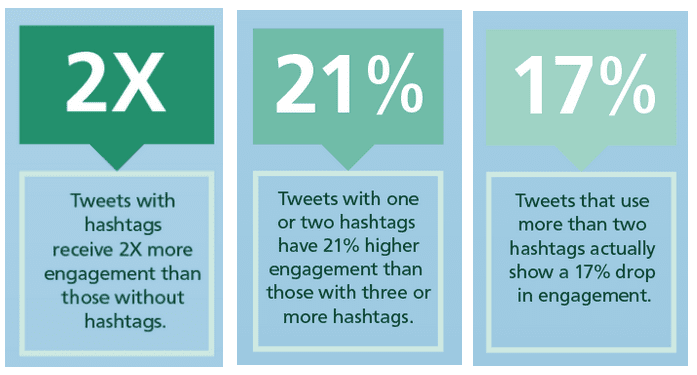Social Media Do’s and Don’ts MBAs Need To Know

Social media can be an impossibly powerful tool. It is the president’s favorite method of communication, after all. Social media can also determine the future for MBA applicants and candidates.
For better or for worse.
U.S. News & World Report found that 35 percent officers interviewed do check out applicants’ social media accounts. What they find might increase a person’s chance of getting in—or could diminish it. Social media could say a lot about a person that may not be clear in an essay or recommendation letter. So why would school’s not at least be safe and check it out?
“To be clear, the large majority of admissions officers do not visit applicants’ social media sites,” Yariv Alpher, Executive Director of Research at Kaplan Test Prep, said. “However, a meaningful number do, as many note that social media can provide a more authentic and holistic view of applicants beyond the polished applications. And in fact, past Kaplan surveys have shown that a majority of students themselves consider their social networking sites to be ‘fair game’ for admissions officers.”
Well, that means applicants and even students must be really intentional—and careful—about how they use platforms like Facebook, Twitter, or Instagram. Otherwise, they could be looking at revoked acceptances or even long-term suspensions.
There is a science to the art of social media postings. And we’ve got you.
Do
Share achievements and wins. Let’s say you’re set to speak on a panel next week; you should tweet about it. Let the world know to be there. When you do speak, make sure someone takes a pic—and share it. Flaunt your accomplishments while staying humble. New job? Let the Internet know. Published a research article? Inform people.
Don’t
Publicize how you celebrate said achievement. Well, unless that celebration is PG. Even then, though, not everything needs to be broadcast to the world, especially if it involves alcohol. Too many college students or teenagers share photos of them on a night out, but that could be a turn off to admissions officers. So unless you’re sharing a cocktail with a celebrity or business goddess, maybe save the photo for family albums, instead.
READ THIS: Wharton MBAs Will Get You Out Of The Social Media Bubble
Do
Be yourself. You want to stay true to you and be an authentic presence online. There are enough imposters acting as a better version of themselves. And sometimes, it’s just too obvious. So let your posts breathe and let officers get a sense of who you are when they take a look at your social media pages. Maybe that means having an inspirational quote in your bio. Whether it’s Kanye West or Steve Jobs says a lot about who you are. And officers should appreciate that.
Don’t
Be reckless about the version of yourself you show. You gotta’ keep it real, but be mindful about what sides of yourself you showcase, too. A cuss word here or there shouldn’t keep a future school or employer from viewing you negatively, but racist or insensitive language would (and should). Certain behavior and ideology are unacceptable, and if that’s how you’re thinking, you need to take a hard look at yourself.
Do
Brand yourself. Ain’t nothing wrong with whipping up a logo and showcasing it online. Or launching a website that you flaunt on your Facebook page. You want schools to know that you’re already business-savvy and show them that you recognize your most valuable business: yourself. Branding yourself through a clever Twitter handle or website domain is a start. Think color schemes and photos. All the pieces of your page speak more than you think, so work them marketing skills.
Don’t
Use that as reason to steal someone else’s work. If you’re going to whip up a logo, make sure you take the right steps to do so—and mention it in a cover letter or somewhere a school will find out. Don’t copy and paste images or use someone else’s. If you show admissions officers you already know how to operate social media and digital skills within legal boundaries, they’ll be even more impressed. Be sure that you take proper steps to legally share images too. You want to sprinkle up your feed with photography (y’know, let them know you’re sophisticated), but don’t just take from a Google search. That can be illegal. Plus, you want to show off that you know about image sharing sites like Flickr or Getty. You’re a business person, remember?
Do
Use hashtags. Schools want students who are with the times. Hashtags are a major part of this time. Remind them that you know when to use them. This will also help others find you if your page is public, so for Twitter, that could mean more followers. On Facebook, that could mean more engagement on posts.
Learning from the hashtag experts could be really beneficial to your overall online presence, despite the cliche connotations. According to Buffer, simple use can greatly increase exposure.

Data via Buffer/Buddy Media
Don’t
Be hashtag-excessive. #EveryLittleThingDoesntNeedAHashtag. Just use relevant hashtags and don’t scare away a school with them. #Please.
Update: Listen to the new “How to Maintain Your Social and Professional Connections” podcast from the Kellogg School of Management for a more in depth perspective.
The Berkeley-Haas MBA Career Path

Three months after graduation, nearly 87 percent of University of California, Berkeley Haas School of Business full-time MBA students had a job. These graduates accepted positions in a variety of industries and at a range of top companies including Adobe, Cisco, Facebook and Microsoft. And thanks to Haas’ close connection with Silicon Valley, 38.8 percent were in technology. Continue reading…
Metro News & Notes: Stanford Entrepreneurship, Jobs & More

Good morning and happy Friday!
Here are a few stories you may have missed from the week that was …
Berkeley Book Discusses Leadership And Strong Personalities

“Who you are shapes how you build.” It’s the informative, overarching message from a pair of Berkeley Haas School of Business fellows in their new book Built For Growth, which explores how the personalities of successful entrepreneurs inform their empires.
Sloan Develops Algorithm To Spot Likely ISIS Members on Twitter

MIT Sloan recently looked into how a Ph.D. candidate and 15-year Army veteran Christopher Marks, along with KDD Career Development Professor in Communications and Technology Tauhid Zaman, built a machine-learning model that identifies likely Islamic State of Iraq and Syria (ISIS) members on Twitter.
Wharton MBAs Will Get You Out Of The Social Media Bubble

The social media bubble has many definitions but perhaps could more accurately referred to as an echo chamber. As in, we are only listening and reading to precisely what we want to hear. That could sound innocent to those who preface cat videos and YouTube mixtapes, but often in the political sense it leads to unabashed biases going unchecked. Continue reading…
